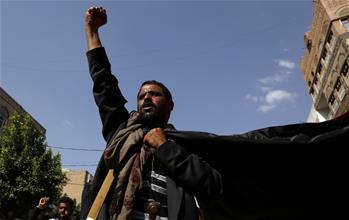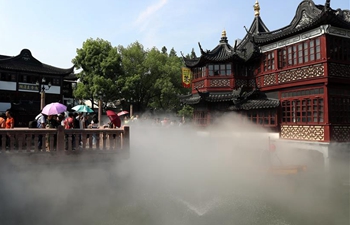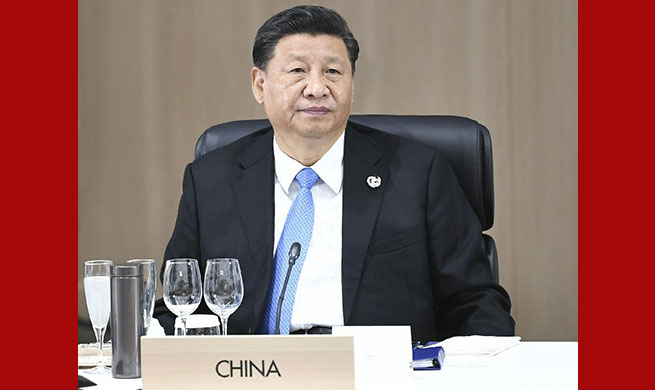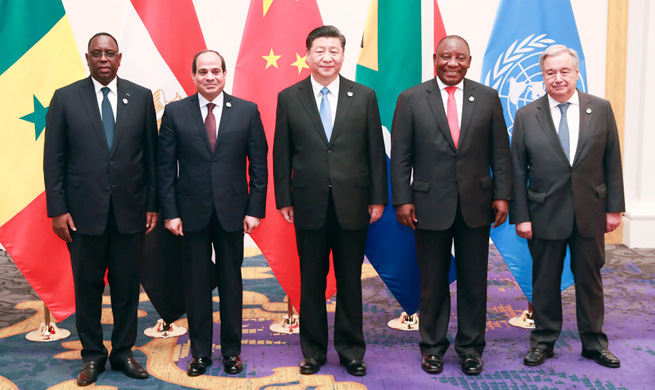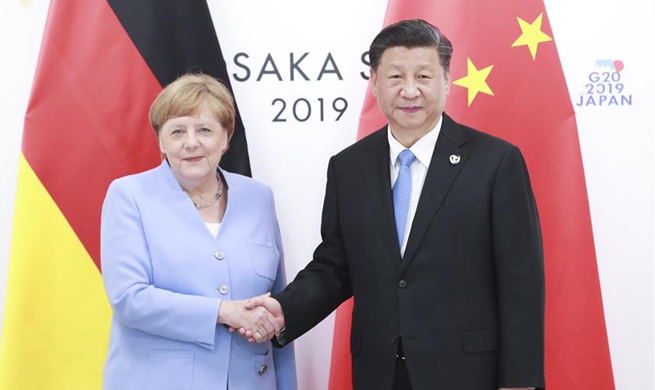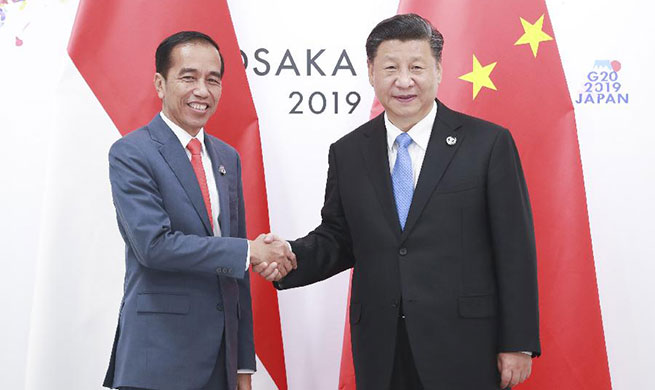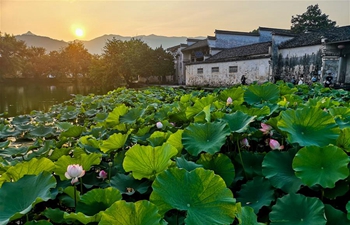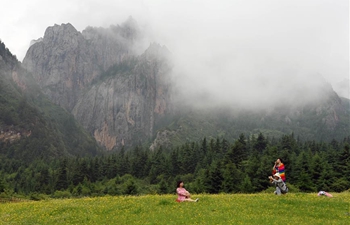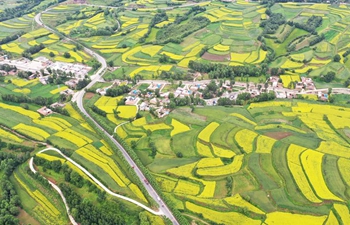OSAKA, Japan, June 29 (Xinhua) -- Leaders from the Group of 20 (G20) major economies on the first of a two-day summit in the western prefecture of Osaka traversed a number of pertinent issues facing the world today, with downside risks facing the global economy and the need for increased collectivism very much in focus.
For many years, world leaders have advocated for multilateral trade at G20 summits, the nations of which account for roughly 80 percent of the world's economy, and in past joint communiques, member nations have predominantly stood against protectionist measures.
Amid a number of potential downside risks to the global economy, however, including but not limited to some moves away from multilateral free trade in favor of more protectionist stances, key member nations have continued to trumpet the virtues of multilateralism in line with previous commitments by G20 members.
"We reaffirm our pledge to use all policy tools to achieve strong, sustainable, balanced and inclusive growth, and safeguard against downside risks, by stepping up our dialogue and actions to enhance confidence… We renew our commitment to work together to improve a rules-based international order that is capable of effectively responding to a rapidly changing world.," the G20 Leaders' Declaration stated last year in Buenos Aires, Argentina.
China, as the world's second-largest economy, has long been a proponent of safeguarding multilateralism, global collectivism and free trade, with experts on the matter referring to the Asian economic powerhouse as a "champion" of these themes.
"I think China is in an interesting position as a result of the Trump administration's position. It appears as the champion of multilateralism and the free trading system," Hugo Dobson, Professor of Japan's International Relations at Sheffield University, told Xinhua Friday.
"It was already evident when China was G20 President in 2016 that it was transitioning from a rule taker to a rule maker that seeks to shape international norms rather than just respond to them. So, China appears to be continuing along this trajectory," Dobson, also Head of Department of East Asian Studies, said at the Index Osaka convention center.
South Korea on Friday, referring to unilaterally-triggered trade disputes and rise of protectionist tendencies, also called on G20 countries to tackle ongoing trade issues in a concerted and responsible manner.
Partly in light of the IMF and the OECD cutting growth forecasts for the global economy, the G20 should show leadership again, South Korean President Moon Jae-in said here Friday, adding that such challenges can't be resolved on an individual country level.
Japan, meanwhile, assuming presidency of the G20 leaders' summit for the first time, has also expressed concern about issues currently weighing on the global economy.
Japanese Prime Minister Shinzo Abe, after welcoming the leaders of the G20 economies prior to the summit, voiced his concern about the current trade environment.
Calling on the G20 to use all policy tools to drive global economy, he asserted that a strong message is needed on free, fair and nondiscriminatory trade.
His sentiments were echoed by Antonio Guterres, Secretary-General of the United Nations in a press conference Friday, who, while referencing global warming, also referred to "global political warming."
"… it is also a moment in which there are uncertainties about the global economy - uncertainties due to trade conflicts, but also uncertainties related to high levels of debt, to potential instability in financial markets, the risk of slowdown in global growth…" Guterres said.
"But, of course, the UN is not part of the G20, we are not members of the G20, but I am grateful for this opportunity to address the leaders and to convey to them our concerns," Guterres added.
Abe, additionally, said he hopes to discuss with leaders the measures on further enhancing the momentum toward the reform of the World Trade Organization (WTO).
European Commission President Jean-Claude Juncker told a press conference here Friday that creating a "level playing field" in terms of WTO reforms would be key.
"We are working closely with the United States and Japan as well as China and others on reforming the World Trade Organization (WTO) and creating a level playing field," Juncker said.
"This can only be done with the G20 as a core group," said Juncker.
Launched in 1995, the WTO has widely been regarded as symbol of free trade, purporting to enhance global trade by eliminating tariffs and other barriers related to levies and establishing rules on trade practices, although calls have been rife for the organization's reform and modernization.
G20 members agreed Friday that expediting the reform of the WTO was important, in twine with a rules-based trade system.
In light of the myriad issues facing the G20 members, many nations in favor of a return to international collectivism and multinational consensus-based trade policies may take heart in previous comments made by Koji Tomita, a Foreign Ministry official representing Japan here at the G20 summit, who was quoted as saying that regaining public confidence in multilateralism is a key goal for the summit.
"In the light of growing economic downturn risks, it is obvious that the Osaka summit has to focus on this condition," Tomita said.





